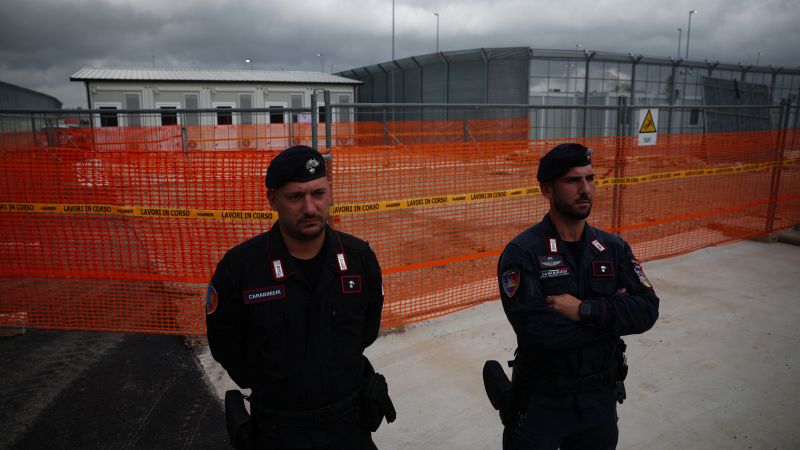
European countries aiming to replicate Italy’s controversial strategy of sending asylum seekers to offshore centers have encountered significant challenges following a ruling from the European Court of Justice (ECJ). On November 3, 2023, the ECJ stated that while Italy may continue utilizing its facilities in the Albanian cities of Shengjin and Gjader, the criteria for sending asylum seekers to these centers must be rigorously evaluated to prevent individuals from being returned to perilous situations in their home countries.
The court emphasized that a country can only be deemed “safe” after undergoing “effective judicial review.” Furthermore, it asserted that safety must be guaranteed for all individuals within a country, particularly those who belong to vulnerable or marginalized groups. This ruling is poised to influence new EU asylum regulations scheduled for implementation in June 2024, which aim to empower member states to formulate their own lists of “safe” countries to expedite the asylum process.
The European Union has designated countries such as Bangladesh, Colombia, Egypt, India, Kosovo, Morocco, and Tunisia as safe. Nevertheless, human rights organizations, including Amnesty International, have raised concerns about the safety of these nations for all residents. In a statement released in July 2023, the organization noted that the EU’s criteria, which classifies countries where 20% or fewer applicants are granted international protection as safe, does not reflect the reality for many individuals fleeing perilous conditions.
The ECJ’s ruling arose from a case involving two Bangladeshi asylum seekers who were held in Albania. They contended that returning to Bangladesh posed a substantial risk to their safety. This decision comes as various European nations explore the possibility of establishing their own deportation schemes, similar to the partnership between Italy and Albania. While the Italian-Albanian model has drawn interest as a potential success story, a recent study by the University of Bari criticized it, labeling it “the most costly, inhumane, and useless instrument in the history of Italian migration policies.” The study revealed that the initiative has already cost Italy over €74.2 million (approximately $86 million).
Despite the criticism, European Commission President Ursula von der Leyen and former European Council President Charles Michel praised Italy’s 2023 agreement with Albania. In May 2024, the EU introduced a set of reforms aimed at streamlining the management of migration and asylum, particularly concerning migrants from designated “safe” countries. This comprehensive pact, described as “fair but firm,” seeks to alleviate the burden on nations that historically receive the majority of asylum seekers among the EU’s 27 member states.
The implications of the ECJ ruling for the future of detention hubs remain uncertain. Italian Prime Minister Giorgia Meloni criticized the court’s decision, asserting that it undermines efforts to combat illegal immigration and secure national borders. “This is a development that should concern everyone,” she remarked, pointing out the diminishing scope for governments to regulate migration effectively.
Currently, in Italy’s detention centers located in Albania, the situations of nearly a dozen individuals from countries identified as safe, including Egypt and Bangladesh, remain precarious. The ongoing debate over the treatment of asylum seekers and the definition of safety in their home countries continues to unfold, as European nations grapple with the complexities of migration policy.







